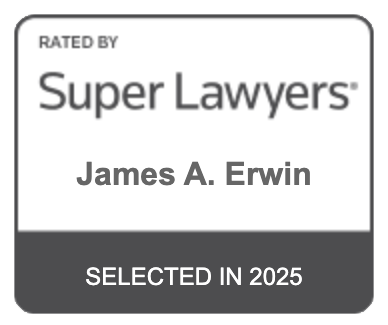In January of 2020, Cook County enacted an amendment to its Fair Housing Ordinance, referred to as the Just Housing Ordinance (JHO), which radically changed how housing providers in Cook County are required to approach their tenant application process. Since then, the world health crisis drew attention away from that development. But our firm, Erwin Law, recently handled a matter for a client that brought the intricacies of the tenant application process back into the spotlight. The case involved a complaint filed with the Illinois Human Rights Commission against a landlord for discrimination involving a potential tenant and their use of housing vouchers.
Briefly, the landlord (whom we represented in this matter before the Commission, but whom we had not previously represented) used an income-to-rent ratio as one of his primary tenant qualifications. In fielding calls from prospective tenants, his habit was to tell them what that ratio was, ask what their income level was, and then make an instant decision on whether or not the prospect should even apply.
In this particular case, the complainant asked if the landlord accepted vouchers, and the landlord responded by asking what the complainant’s income was. As the landlord calculated it, the income did not meet the ratio requirement, and he rejected the prospect in the initial phone call. Unfortunately, the landlord was not aware of an important state regulation; one that requires landlords to back out the voucher amount from the rent before making the ratio calculation.
While we were able to get the matter resolved and dismissed quickly, it served as a reminder about the many pitfalls landlords face before they even sign a lease or take on a tenant.
As a refresher, we offer some basic, best practices to consider for your tenant application process:
Establish a general set of tenant qualifications in advance, and stick to them.
Under the JHO, landlords are required to disclose their “tenant selection criteria” to all applicants, prior to accepting an application fee. We recommend keeping your qualification criteria as broad as possible. Rather than saying something like, “minimum credit score of 680,” we suggest stating “satisfactory credit scores.” This allows for greater flexibility.
You may have an applicant who otherwise is perfect, but has a slightly lower score than you might normally accept. If you have pigeon-holed yourself by declaring a specific threshold, you might be eliminating someone you would actually prefer to accept.
And, of course, if criminal records are part of your qualification process, you need to be sure you are familiar with the JHO and its restriction against requesting, obtaining or using such records in the initial qualification phase.
Prepare a written qualification or selection criteria statement that satisfies the JHO mandates.
Make sure you have a way of proving you provided that written statement to an applicant prior to accepting any application fees from them. Trying to satisfy this step through verbal communication can be fraught with problems later in the process.
Never reject a tenant before they have submitted an application.
Potential tenants may call and request that you tell them, by phone, whether or not they would qualify. They may say things like, “I have a criminal conviction from a couple of years ago,” or “I have bad credit.”
Do not respond to those comments over the phone. Simply let them know that you do not accept or reject applicants without a fully completed application and application fee.
Proper documentation is key.
If at all feasible, invest in a property management software system that automates the application process. This way, you can easily document how each and every application is handled, from start to finish.
Have qualified counsel review your application forms.
Even if you use property management software, don’t assume them to be compliant with local rules. In fact, most of the software providers in the industry are not yet able to strictly comply with the JHO. That makes it even more important to review your application process regularly with qualified counsel familiar with these ever-changing rules.
For almost 30 years, Erwin Law has been providing clients with the kind of information and guidance they need in order to properly comply with the varied and complicated landlord regulations in Chicago and Cook County. Whether you’re dealing with a current situation, or looking to avoid problems in the future, we’re here to help. For further details, call James Erwin at 773-525-0153.
